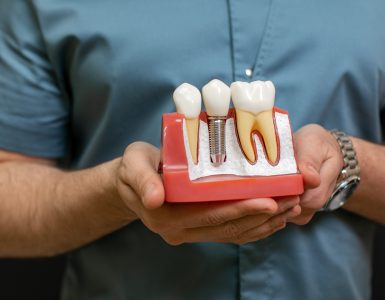Natural hormonal changes through pregnancy can increase the risk of oral health problems. You may notice a change in the health of your gums during the first trimester. You possibly are also experiencing some morning sickness and/or food cravings. We’ll have a look at these issues and also ways of minimising any damage to your teeth and gums.
Teeth and gum problems
- Gingivitis. You may notice redness and swelling caused by inflammation of your gums. You may also notice that your gums bleed when you brush or floss your teeth. Many pregnant women experience this and fortunately it is only temporary. If you’ve maintained good oral hygiene before pregnancy, chances are it may not affect you. If you are suffering with gingivitis, you should ensure you have a check-up with your dentist.
- Periodontal or gum disease. This can develop if gingivitis is left untreated and is an infection in the gums. It can weaken the tissues that hold your teeth in place and shouldn’t be ignored. As mentioned above, it can also increase the chances of premature birth or low birth weight which can risk the health of your baby, so this should be dealt with immediately.
- Pregnancy tumours. These are red lumpy lesions that form along the gum line and between the teeth. They are harmless and should go away once you have given birth.
- Loose teeth. The high levels of pregnancy hormones can temporarily loosen your teeth by affecting the issues and bones that hold your teeth in place.
- Cavities. You may notice that you are more susceptible to cavities when you are pregnant.
Morning Sickness
Not all women experience morning sickness, but if you are one of them your teeth may be exposed to too much stomach acid caused by vomiting or reflux, which can have an erosive effect on your teeth. Although your first thought might be to brush your teeth after vomiting, because your tooth enamel has been softened and weakened by the stomach acid, you could damage it. It is recommended you wait at least 30 minutes before brushing your teeth. Instead you can rinse your mouth out with water and smear some fluoride toothpaste on your teeth to refresh your mouth and strengthen the enamel. You could also chew some sugar free gum or stimulate saliva to neutralise the acid and wash it away.
Food Cravings
You may find yourself with some unusual cravings, like sugary or acidic foods and drinks. As these can increase the chances of tooth decay, it is a good idea to try to avoid them and snack on foods low in sugar instead. If you simply cannot reign in that craving for something sugary, try some fresh fruit instead and make sure you either rinse your mouth out with water or brush your teeth afterwards.
To help keep your teeth and gums healthy during your pregnancy, it is important that you have a healthy oral hygiene routine, attend regular dental check-ups and eat a healthy diet. If you have any questions or concerns about your oral health during your pregnancy, contact your dentist who will be more than happy to discuss these with you.













